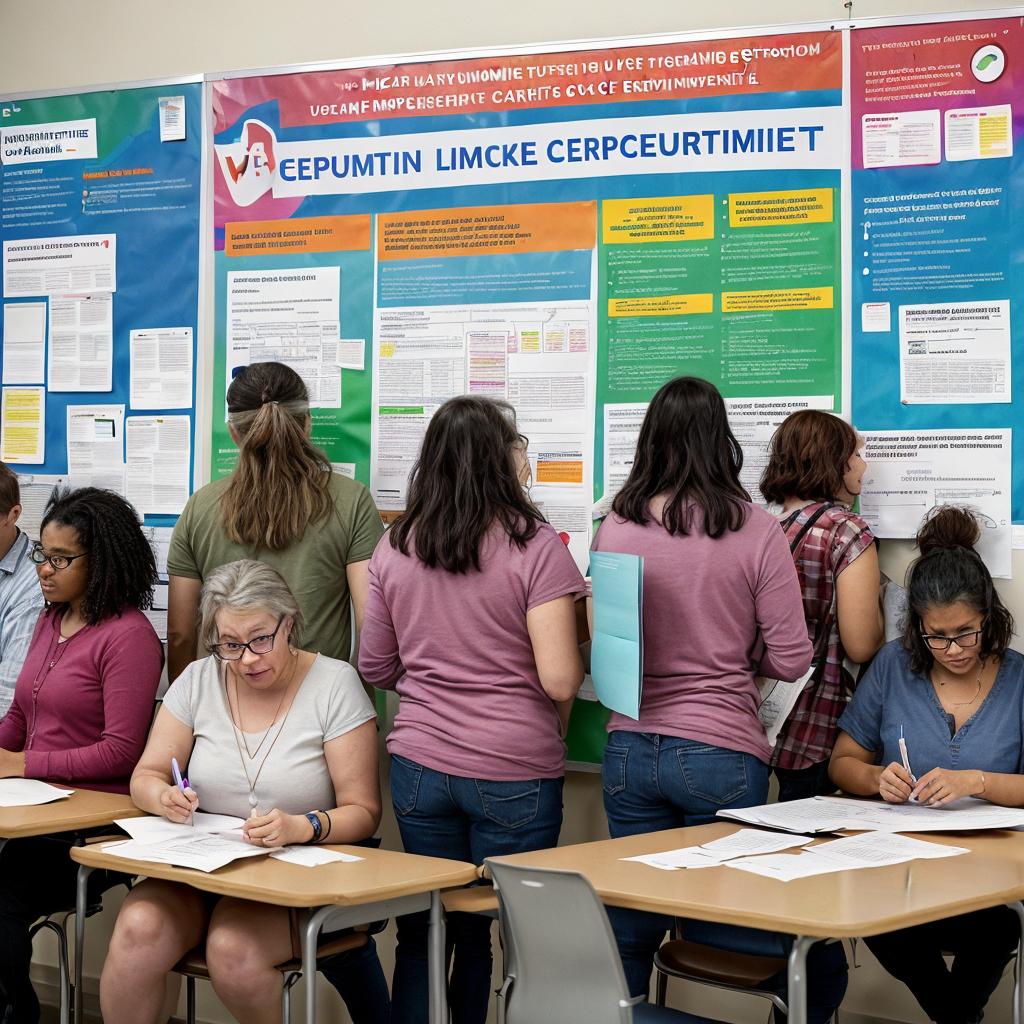Mastering Obamacare Enrollment Deadlines: A Guide

Are you feeling overwhelmed by the maze of Obamacare enrollment deadlines? Don’t worry, we’ve got you covered.
In this comprehensive guide, we’ll walk you through the key enrollment dates, explain special enrollment periods, and provide tips to ensure a smooth enrollment experience.
By avoiding common mistakes and utilizing additional resources, you’ll be a master of Obamacare enrollment in no time.
Get ready to take control of your healthcare coverage and make informed decisions.
Key Takeaways
- The Open Enrollment Period for Obamacare is from November 1st to December 15th each year, during which individuals can enroll in or make changes to their health insurance plan.
- Missing the Open Enrollment Period may require waiting until the next enrollment period, potentially leaving individuals without coverage.
- Special Enrollment Periods allow individuals to enroll outside of the regular Open Enrollment Period if they experience qualifying life events, such as marriage, having a baby, or losing other health coverage.
- It is important to research different plans, compare coverage and benefits, and utilize online resources or seek assistance from trained navigators or certified enrollment counselors to have a smooth enrollment experience.
Key Obamacare Enrollment Deadlines
To ensure you meet important deadlines, it’s crucial that you understand the key Obamacare enrollment deadlines.
The first deadline to keep in mind is the Open Enrollment Period, which typically runs from November 1st to December 15th each year. During this time, you have the opportunity to enroll in a health insurance plan or make changes to your existing coverage. It’s important to note that if you miss this deadline, you may have to wait until the next Open Enrollment Period unless you qualify for a Special Enrollment Period.
Another important deadline to be aware of is the deadline for coverage to start. If you enroll in a plan during the Open Enrollment Period, your coverage will typically start on January 1st of the following year. However, if you enroll after December 15th, your coverage may not start until February 1st or later. It’s essential to enroll as early as possible to ensure that your coverage begins when you need it.
Lastly, it’s crucial to understand the deadline for Medicaid and the Children’s Health Insurance Program (CHIP) enrollment. Unlike the Open Enrollment Period, Medicaid and CHIP have year-round enrollment. This means that you can apply for and enroll in these programs at any time throughout the year.
Understanding Special Enrollment Periods
If you qualify for a Special Enrollment Period, you can enroll in a health insurance plan outside of the regular Open Enrollment Period. Special Enrollment Periods are designed to provide individuals with opportunities to sign up for health coverage outside of the annual enrollment period.
Here are five important things to understand about Special Enrollment Periods:
- Qualifying Life Events: In order to be eligible for a Special Enrollment Period, you must have experienced a qualifying life event, such as getting married, having a baby, or losing other health coverage.
- Timeframe: The timeframe for enrolling in a health insurance plan during a Special Enrollment Period is generally 60 days from the date of the qualifying life event. However, certain life events, such as the birth or adoption of a child, may allow for a longer enrollment period.
- Documentation: When applying for a Special Enrollment Period, you may be required to provide documentation to verify your eligibility. This can include marriage certificates, birth certificates, or letters from your previous health insurer.
- Penalties: If you fail to enroll in a health insurance plan during the Open Enrollment Period or a Special Enrollment Period, you may be subject to a penalty. It’s important to be aware of the deadlines and requirements to avoid penalties.
- Marketplace Coverage: Special Enrollment Periods apply to health insurance plans purchased through the Health Insurance Marketplace. If you’re eligible for employer-sponsored coverage or Medicaid, different rules may apply.
Understanding Special Enrollment Periods is crucial for those who experience qualifying life events and need to enroll in health insurance outside of the regular enrollment period. By familiarizing yourself with the requirements and deadlines, you can ensure that you have the coverage you need when you need it.
Tips for a Smooth Enrollment Experience
Make sure you regularly review your options and take advantage of the Special Enrollment Periods to have a smooth enrollment experience. By staying informed and making informed decisions, you can ensure that you find the right healthcare plan that meets your needs.
Here are some tips to help you navigate the enrollment process efficiently:
- Research different plans: Compare the available plans to find one that offers the coverage and benefits you need. Consider factors such as premiums, deductibles, and network providers.
- Understand your healthcare needs: Take into account your medical history, current health conditions, and any anticipated healthcare needs. This will help you choose a plan that covers the services and medications you require.
- Utilize online resources: Visit the healthcare marketplace website or use online tools to explore different plan options. These resources can provide valuable information and simplify the enrollment process.
- Seek assistance if needed: If you find the enrollment process overwhelming or confusing, don’t hesitate to seek help from a trained navigator or a certified enrollment counselor. They can guide you through the process and answer any questions you may have.
- Keep track of deadlines: Stay aware of enrollment deadlines to ensure you don’t miss any important dates. Mark them on your calendar or set reminders on your phone to avoid any last-minute rush or penalties.
Following these tips will help you have a smooth enrollment experience and find a healthcare plan that suits your needs.
Now, let’s explore some common enrollment mistakes to avoid.
Avoiding Common Enrollment Mistakes
To ensure a successful enrollment process, it’s important to be aware of common mistakes that can be avoided. Here are some tips to help you navigate the enrollment process smoothly:
- Not understanding the enrollment period: One of the most common mistakes isn’t knowing the specific dates of the enrollment period. Make sure to mark your calendar and set reminders for the open enrollment period to avoid missing out on coverage.
- Not double-checking information: It’s crucial to review all the information you provide during the enrollment process. Any errors or missing details can lead to delays or even denial of coverage. Take the time to verify your personal information, income, and household details for accuracy.
- Not exploring all available options: Many people make the mistake of not exploring all the available health insurance plans. Take the time to research and compare different plans to find the one that best suits your needs and budget.
- Not seeking assistance when needed: If you find the enrollment process confusing or overwhelming, don’t hesitate to seek assistance. There are resources available, such as enrollment counselors or insurance brokers, who can help you navigate through the process and make informed decisions.
- Not reviewing your coverage annually: Your healthcare needs may change over time, so it’s essential to review your coverage annually. Make sure to reassess your needs, compare plans, and update your information during the open enrollment period.
Resources for Additional Enrollment Assistance
Take advantage of various resources available to assist you with your Obamacare enrollment process. The enrollment process can be complex and confusing, but with the right assistance, you can navigate it successfully. Here are some resources that can provide you with the additional help you need:
| Resource | Description | Contact Information |
|---|---|---|
| Health Insurance Marketplace | The official website for Obamacare, where you can find information, compare plans, and enroll in coverage. | Visit healthcare.gov or call 1-800-318-2596. |
| Certified Enrollment Counselors | Trained professionals who can provide free assistance in navigating the enrollment process, explaining plan options, and helping you apply for coverage. | Find a counselor near you at localhelp.healthcare.gov. |
| Insurance Agents and Brokers | Licensed professionals who can help you understand your coverage options, compare plans, and enroll in a suitable plan. | Use the agent and broker finder at healthcare.gov to find a licensed professional in your area. |
These resources offer a range of assistance, from online tools to in-person support, ensuring that you have access to the help you need at every step of the enrollment process. Whether you prefer to research and enroll on your own or receive personalized guidance, these resources can make the process smoother and more manageable. Don’t hesitate to reach out for assistance to ensure you make the right choices for your healthcare coverage.
Frequently Asked Questions
What Are the Penalties for Not Enrolling in Obamacare During the Open Enrollment Period?
You may face penalties for not enrolling in Obamacare during open enrollment. These penalties can include financial consequences and a lack of health insurance coverage. It is important to understand the consequences before making a decision.
Can I Enroll in Obamacare Outside of the Open Enrollment Period if I Recently Lost My Job and My Employer-Sponsored Health Insurance?
If you recently lost your job and employer-sponsored health insurance, you may be eligible to enroll in Obamacare outside of the open enrollment period. It’s important to understand the specific requirements and deadlines.
Are There Any Exceptions to the Income Requirements for Obamacare Eligibility?
Yes, there are exceptions to the income requirements for Obamacare eligibility. You may qualify for subsidies or Medicaid if your income falls below a certain level. It’s important to check your specific situation.
How Can I Find Out if My Current Healthcare Provider Accepts Obamacare Plans?
To find out if your current healthcare provider accepts Obamacare plans, you can start by contacting them directly or visiting their website. They should have information on which health plans they participate in.
Can I Enroll in Obamacare if I Am Currently Enrolled in Medicaid or Medicare?
Yes, you can enroll in Obamacare even if you’re currently enrolled in Medicaid or Medicare. It’s important to understand the eligibility requirements and potential impacts on your existing coverage.



